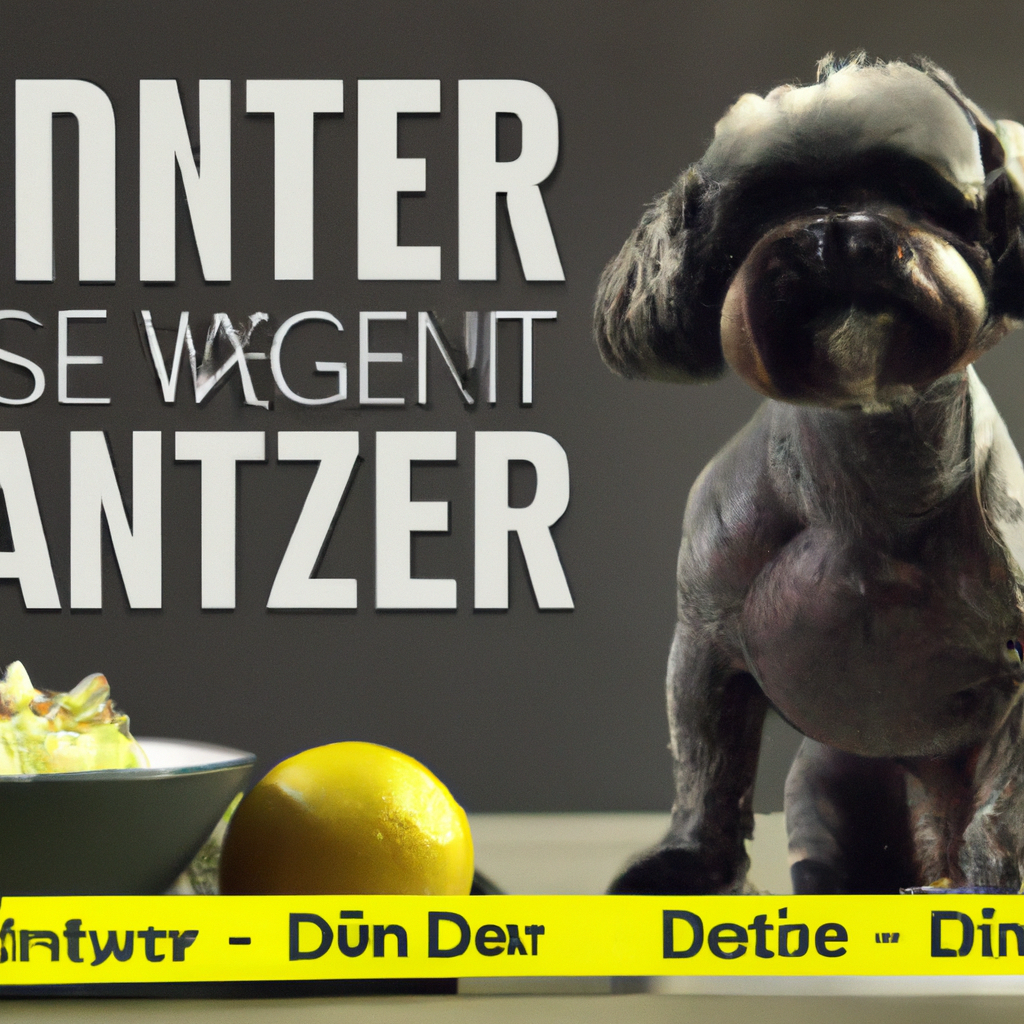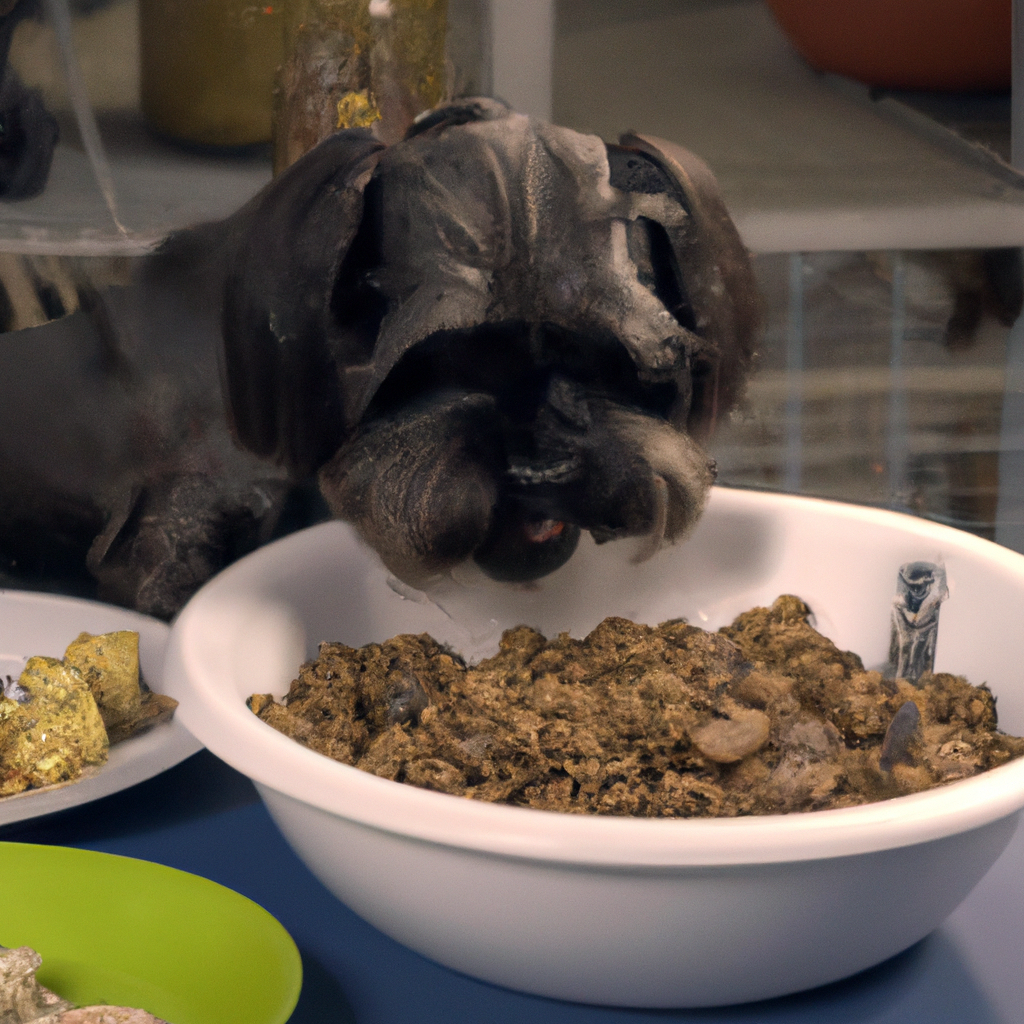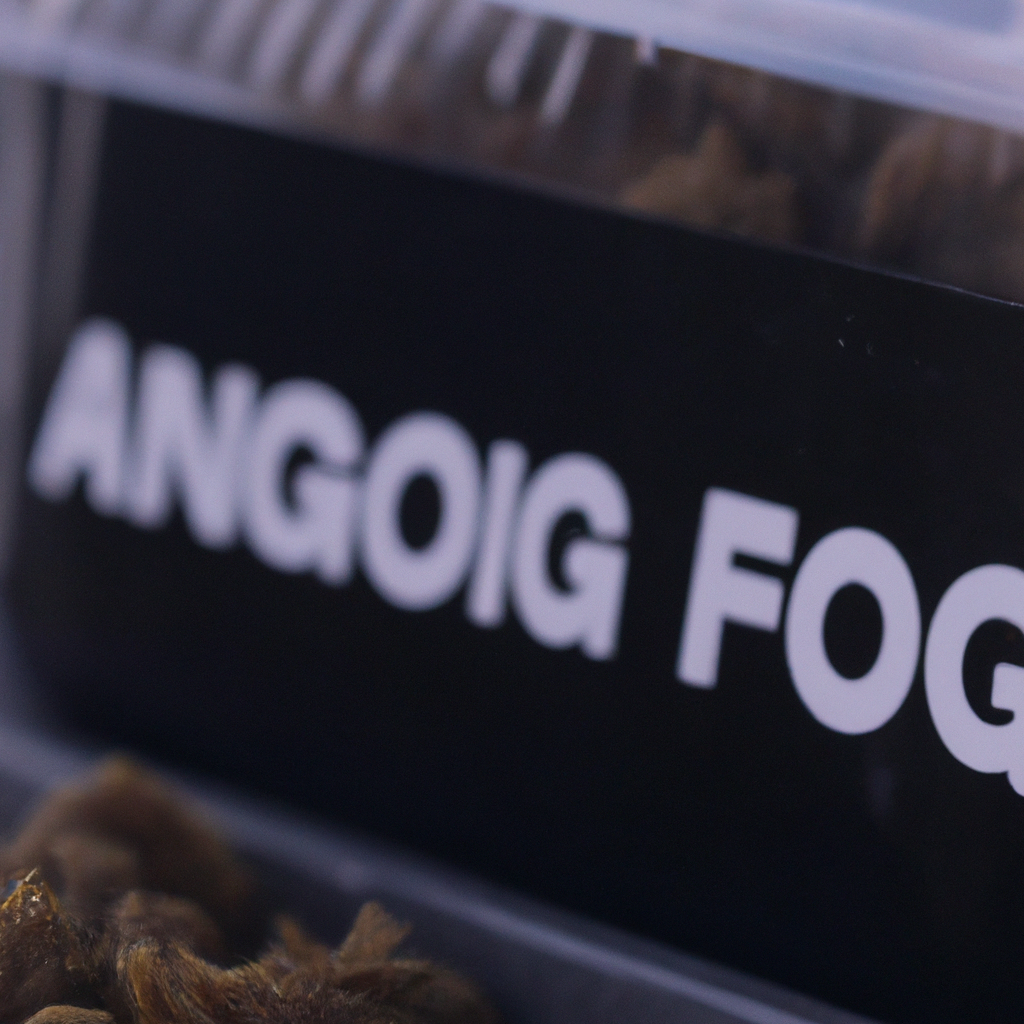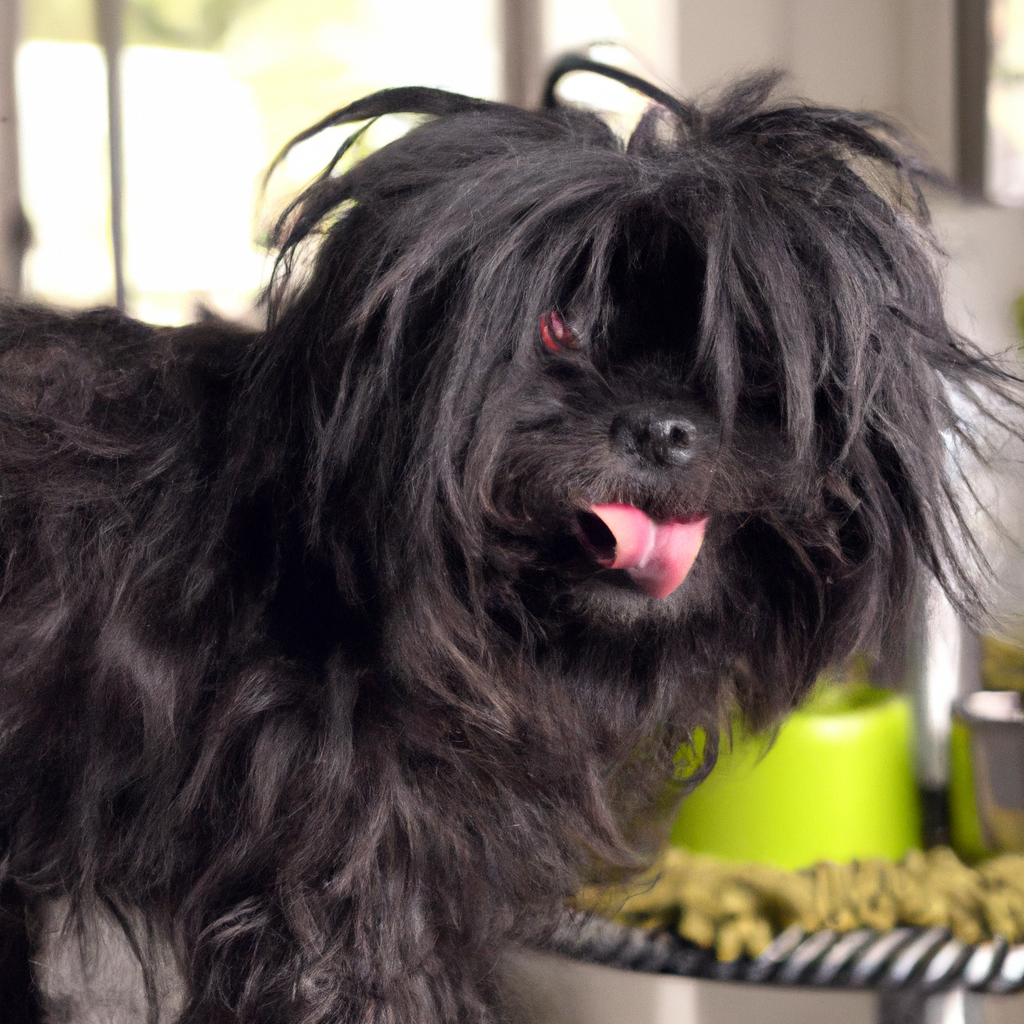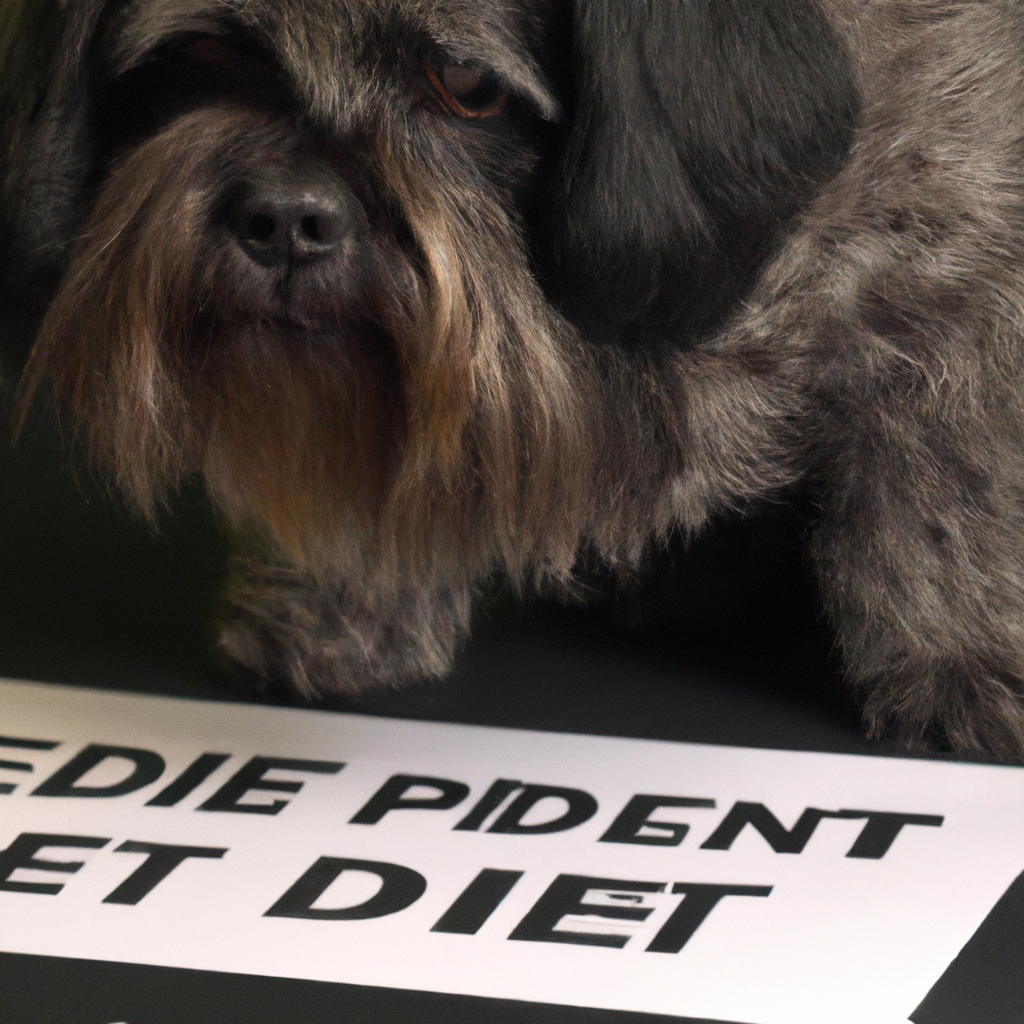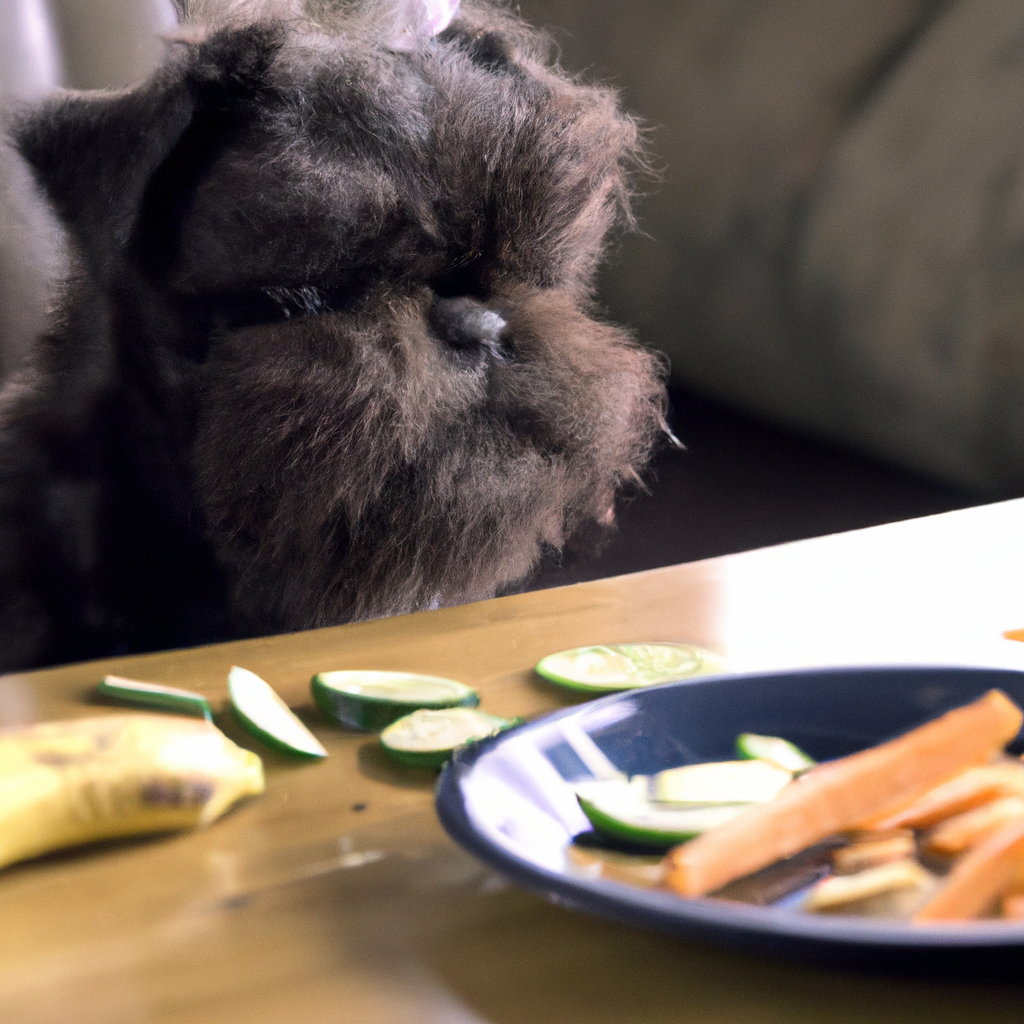The Affenpinscher diet guide provides comprehensive information on the nutritional needs of the Affenpinscher breed. This guide covers the essential nutrients required for their growth, development, and overall health. It includes details on the type of food, portion sizes, feeding schedules, and dietary restrictions specific to this breed. The guide also offers advice on how to maintain a balanced diet to prevent obesity and other health issues. It is a valuable resource for Affenpinscher owners to ensure their pets are receiving the right amount and type of food.
Understanding the Nutritional Needs of Your Affenpinscher
The Affenpinscher, also known as the “Monkey Terrier,” is a small but feisty breed known for its distinctive, almost human-like face and playful personality. If you’re lucky enough to have one of these charming little dogs as part of your family, you’ll want to ensure that you’re meeting all of their nutritional needs.
Affenpinschers, like all dogs, require a balanced diet to maintain their health and vitality. However, due to their small size, they have some specific dietary requirements that owners should be aware of. The first thing to note is that Affenpinschers have a fast metabolism. This means they burn through calories quickly and need to eat more frequently than larger breeds.
A diet rich in high-quality protein is essential for these energetic little dogs. Protein helps to build and repair body tissues and provides the energy your Affenpinscher needs to stay active and playful. Look for dog foods that list a source of animal protein, such as chicken, beef, or fish, as the first ingredient.
In addition to protein, Affenpinschers also need a good balance of carbohydrates. Carbs provide another source of energy and help to keep your dog’s digestive system functioning properly. However, it’s important to choose complex carbohydrates, like sweet potatoes or brown rice, over simple sugars, which can lead to weight gain and other health problems.
Fats are another important part of your Affenpinscher’s diet. They provide essential fatty acids, which are necessary for skin and coat health, and they also make food taste better, which can be important for picky eaters. Look for sources of healthy fats, like fish oil or flaxseed, in your dog’s food.
While it’s important to ensure your Affenpinscher is getting enough of these key nutrients, it’s equally important to avoid overfeeding. These small dogs can easily become overweight, which can lead to a host of health problems, including diabetes and heart disease. To prevent this, measure out your dog’s food carefully, and avoid giving too many treats or table scraps.
Feeding your Affenpinscher several small meals throughout the day, rather than one or two large ones, can also help to prevent overeating and keep their metabolism running smoothly. And remember, fresh water should always be available to keep your dog hydrated.
As with any breed, the specific amount and type of food your Affenpinscher will need can vary depending on their age, size, and activity level. Puppies, for example, require more calories than adult dogs, while older dogs may need fewer. It’s always a good idea to consult with your vet to determine the best diet for your individual dog.
In conclusion, feeding your Affenpinscher a balanced diet that’s rich in high-quality protein, complex carbohydrates, and healthy fats can help to ensure they stay healthy and active for many years to come. Remember to avoid overfeeding, provide plenty of fresh water, and consult with your vet to determine the best diet for your dog. With the right nutrition, your Affenpinscher can continue to bring joy and laughter to your home for many years to come.
The Best Dog Food Brands for Affenpinschers
Affenpinschers, affectionately known as “Monkey Dogs,” are small but mighty creatures with a big personality. These little dogs are known for their playful and adventurous nature, but they also have specific dietary needs that must be met to ensure their health and longevity. When it comes to feeding your Affenpinscher, it’s not just about what you feed them, but also how much and how often.
The best dog food brands for Affenpinschers are those that offer high-quality ingredients, balanced nutrition, and cater to the specific needs of small breed dogs. One such brand is Blue Buffalo. Known for its natural ingredients and holistic approach to pet nutrition, Blue Buffalo offers a variety of formulas specifically designed for small breed dogs. Their “Life Protection Formula Small Breed Dog Food” is a great choice for Affenpinschers, as it contains high-quality protein from real chicken, whole grains, and a precise blend of fruits and vegetables.
Another excellent brand to consider is Royal Canin. They offer a breed-specific formula for small dogs, aptly named “Royal Canin Small Breed Adult Dry Dog Food.” This formula is enriched with EPA and DHA for skin and coat health, and it also contains adapted protein content to support muscle development.
Hill’s Science Diet is another brand that comes highly recommended for Affenpinschers. Their “Small Paws” line is specifically designed for small breed dogs and is made with easy-to-digest ingredients to ensure your Affenpinscher gets all the nutrients they need. It also contains a clinically proven blend of antioxidants with vitamins C and E to support a healthy immune system.
While these brands are all excellent choices, it’s important to remember that every dog is unique, and what works for one Affenpinscher may not work for another. Factors such as age, activity level, and health status can all influence a dog’s dietary needs. For instance, puppies require more protein and calories to support their growth and development, while senior dogs may need fewer calories to prevent weight gain.
It’s also worth noting that Affenpinschers, like many small breed dogs, can be prone to dental issues. Therefore, incorporating some dry kibble into their diet can help keep their teeth clean and healthy.
When transitioning your Affenpinscher to a new food, it’s best to do so gradually over a week or so to avoid upsetting their stomach. Start by mixing a small amount of the new food with their current food, gradually increasing the amount of new food while decreasing the amount of the old food each day.
Lastly, while it can be tempting to spoil your Affenpinscher with treats and table scraps, it’s important to remember that these should only make up a small portion of their overall diet. Too many treats or human foods can lead to obesity and other health issues.
In conclusion, feeding your Affenpinscher a balanced, high-quality diet is one of the best things you can do for their health. Brands like Blue Buffalo, Royal Canin, and Hill’s Science Diet offer excellent options that cater to the specific needs of small breed dogs like Affenpinschers. However, it’s always a good idea to consult with your vet before making any major changes to your dog’s diet. They can provide personalized advice based on your Affenpinscher’s individual needs.
Homemade Diet Recipes for Affenpinschers
Affenpinschers, affectionately known as “Monkey Dogs,” are small, energetic, and playful companions. They are known for their distinctive appearance and their lively, adventurous spirit. But, like any other breed, Affenpinschers have specific dietary needs that must be met to ensure their health and longevity. While commercial dog food can provide a balanced diet, some Affenpinscher owners prefer to prepare homemade meals for their furry friends. If you’re considering this route, here are some homemade diet recipes that your Affenpinscher will surely love.
Firstly, let’s talk about protein. Affenpinschers, like all dogs, require a diet rich in protein. A simple yet nutritious recipe you can try involves lean chicken, turkey, or fish. Boil the meat until it’s thoroughly cooked, then shred it into small, bite-sized pieces. This can be served alone or mixed with other ingredients for a more balanced meal.
Next, let’s consider vegetables. Dogs can benefit from the vitamins and minerals found in many vegetables. Carrots, peas, and green beans are all excellent choices for your Affenpinscher. You can steam these vegetables until they’re soft, then mix them with the cooked meat. Remember to cut them into small pieces to prevent choking.
Grains are another important part of your Affenpinscher’s diet. Brown rice, quinoa, or oatmeal can provide the necessary carbohydrates for energy. Cook the grains according to the package instructions, then mix them with the meat and vegetables. This creates a balanced meal that covers all the necessary food groups.
Now, let’s not forget about fruits. While not all fruits are safe for dogs, many are, and they can provide a sweet treat for your Affenpinscher. Apples (without the seeds), bananas, and blueberries can be cut into small pieces and mixed into the meal or served as a treat.
While preparing homemade meals for your Affenpinscher can be rewarding, it’s important to remember that not all human foods are safe for dogs. Foods like chocolate, grapes, onions, and garlic can be toxic to dogs and should be avoided. Always research or consult with your vet before introducing a new food into your dog’s diet.
In addition, while these homemade meals can provide a balanced diet, they may not cover all the nutritional needs of your Affenpinscher. It’s recommended to supplement these meals with a high-quality commercial dog food or specific supplements recommended by your vet. This ensures that your Affenpinscher gets all the necessary nutrients for a healthy life.
Lastly, portion control is crucial. Affenpinschers are small dogs, and overfeeding can lead to obesity and other health issues. As a general rule, an adult Affenpinscher should eat about 1/4 to 1/2 cup of food per meal, but this can vary depending on their age, size, and activity level. Always consult with your vet to determine the appropriate portion size for your dog.
In conclusion, preparing homemade meals for your Affenpinscher can be a great way to ensure they’re getting a balanced diet made with love. By incorporating a variety of proteins, vegetables, grains, and fruits, and by paying attention to portion sizes and nutritional needs, you can provide a diet that supports your Affenpinscher’s health and happiness.
How to Prevent Obesity in Affenpinschers Through Diet
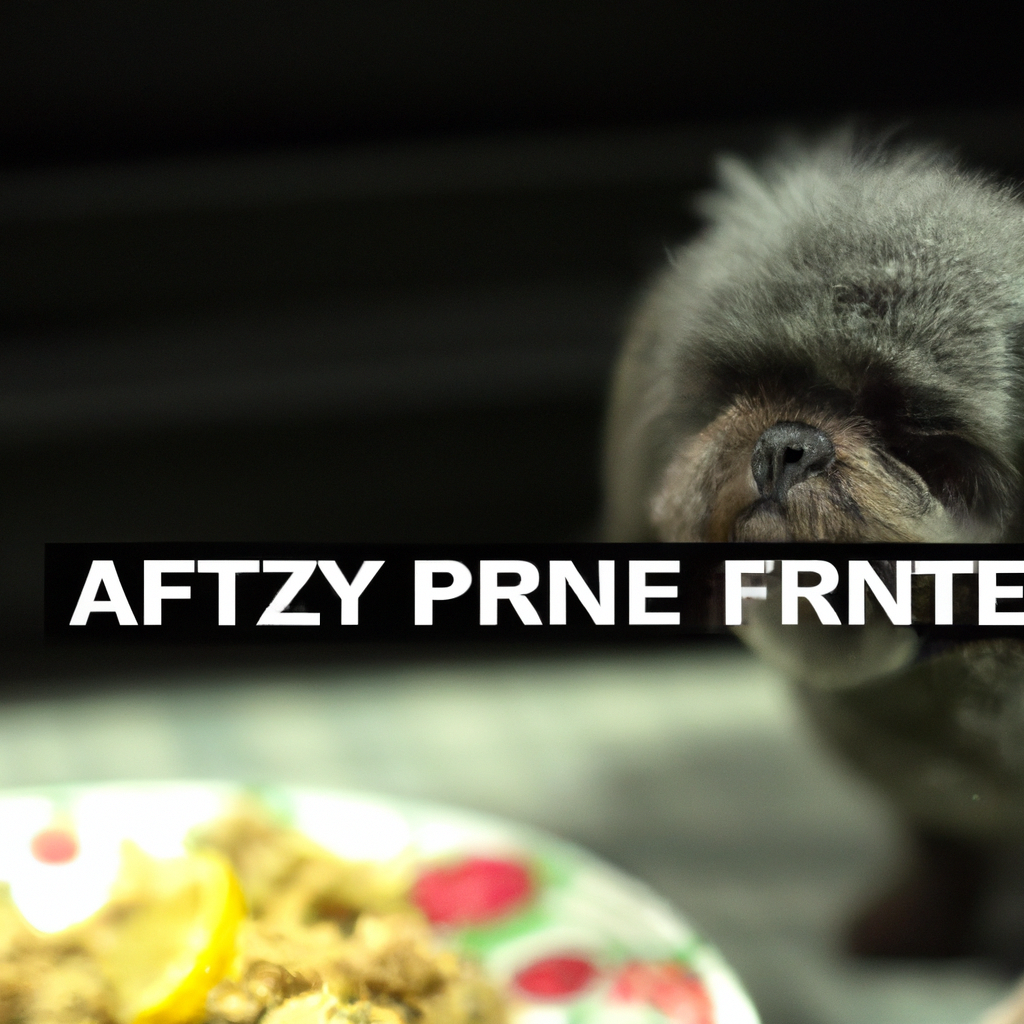
The Affenpinscher, affectionately known as the “Monkey Dog” due to its primate-like appearance and playful nature, is a small breed that’s big on personality. However, like many small breeds, Affenpinschers are prone to obesity, a condition that can lead to serious health problems such as diabetes, heart disease, and joint issues. Therefore, it’s crucial for Affenpinscher owners to understand how to prevent obesity through a proper diet.
Firstly, it’s important to understand that Affenpinschers, despite their small size, are energetic and require a diet that fuels their active lifestyle. However, this doesn’t mean they should be overfed. The key is to provide a balanced diet that meets their nutritional needs without leading to weight gain. High-quality commercial dog food that’s specially formulated for small breeds is typically a good choice. These foods are designed with the right balance of proteins, fats, and carbohydrates to keep your Affenpinscher healthy and energetic.
Portion control is another crucial aspect of preventing obesity in Affenpinschers. Even the healthiest food can lead to weight gain if given in excess. It’s easy to overestimate how much food your Affenpinscher needs, especially when those expressive eyes are begging for more. However, resist the temptation to overfeed. Most small breed dog foods provide guidelines on how much to feed based on weight. Stick to these guidelines, and remember that treats should make up no more than 10% of your dog’s daily caloric intake.
Speaking of treats, it’s important to choose them wisely. Many commercial dog treats are high in sugar and fat, which can quickly lead to weight gain. Instead, opt for healthier alternatives like small pieces of fruits and vegetables. Not only are these treats lower in calories, but they also provide additional nutrients. Just be sure to avoid foods that are toxic to dogs, such as grapes, onions, and chocolate.
In addition to choosing the right food and controlling portions, regular vet check-ups are essential in preventing obesity in Affenpinschers. Your vet can monitor your dog’s weight and provide personalized advice based on their age, activity level, and overall health. They can also rule out any underlying health issues that might be contributing to weight gain.
Finally, remember that diet is just one piece of the puzzle when it comes to preventing obesity in Affenpinschers. Regular exercise is equally important. Affenpinschers love to play and need daily physical activity to burn off energy and keep their weight in check. Whether it’s a game of fetch in the backyard or a brisk walk around the block, make sure your Affenpinscher gets plenty of exercise each day.
In conclusion, preventing obesity in Affenpinschers through diet involves providing a balanced diet, controlling portions, choosing healthy treats, and scheduling regular vet check-ups. Combined with regular exercise, these strategies can help ensure your Affenpinscher stays healthy and fit. Remember, every dog is unique, so what works for one Affenpinscher might not work for another. Always consult with your vet before making any significant changes to your dog’s diet or exercise routine. With the right approach, you can help your Affenpinscher live a long, happy, and healthy life.
Feeding Schedule: How Often Should You Feed Your Affenpinscher?
The Affenpinscher, also known as the “Monkey Terrier,” is a small but feisty breed known for its distinctive, almost human-like face and playful personality. As with any pet, proper nutrition is key to ensuring your Affenpinscher lives a long, healthy, and happy life. When it comes to feeding your Affenpinscher, it’s not just about what you feed them, but also how often you feed them.
Affenpinschers, like most dogs, thrive on routine. Establishing a consistent feeding schedule is crucial for their overall health and well-being. Generally, adult Affenpinschers should be fed twice a day – once in the morning and once in the evening. This twice-a-day feeding schedule helps to keep their metabolism stable and prevents them from becoming overly hungry between meals.
Puppies, on the other hand, require more frequent feedings. Affenpinscher puppies should be fed three to four times a day until they are about six months old. This is because puppies are growing rapidly and need more nutrients to support their development. After six months, you can gradually reduce the number of feedings to twice a day.
Now, you might be wondering, “How much should I feed my Affenpinscher at each meal?” The answer to this question depends on several factors, including your dog’s age, weight, activity level, and overall health. As a general rule of thumb, an adult Affenpinscher requires about 1/2 to 1 cup of high-quality dry dog food per day, divided into two meals. However, this is just a guideline, and individual needs can vary. It’s always best to consult with your vet to determine the appropriate portion sizes for your pet.
While it’s important to stick to a regular feeding schedule, it’s equally important to monitor your Affenpinscher’s weight and adjust their food intake as necessary. Affenpinschers are prone to obesity, which can lead to a host of health problems, including diabetes, heart disease, and joint issues. If you notice your Affenpinscher gaining weight, it may be necessary to reduce their food intake or increase their physical activity.
In addition to regular meals, Affenpinschers, like all dogs, enjoy treats. However, treats should make up no more than 10% of your dog’s daily caloric intake. Too many treats can lead to weight gain and nutritional imbalances. When giving treats, opt for healthy options like small pieces of fruits or vegetables, and always avoid foods that are toxic to dogs, such as chocolate, grapes, and onions.
In conclusion, feeding your Affenpinscher isn’t just about providing them with food. It’s about establishing a routine, monitoring their weight, and making adjustments as necessary to ensure they’re getting the right amount of nutrients. Remember, every Affenpinscher is unique, and what works for one may not work for another. Always consult with your vet to create a feeding plan that’s tailored to your Affenpinscher’s specific needs. With the right diet and feeding schedule, your Affenpinscher can enjoy a long, healthy, and happy life.
The Role of Diet in Affenpinscher’s Dental Health
The Affenpinscher, affectionately known as the “Monkey Dog” due to its primate-like appearance and playful nature, is a small but robust breed. Like all dogs, the Affenpinscher’s overall health is significantly influenced by its diet. However, one aspect of their health that is often overlooked is dental health. The role of diet in an Affenpinscher’s dental health is crucial and should not be underestimated.
Affenpinschers, like many small breeds, are prone to dental issues. These can range from bad breath and tartar build-up to more serious conditions like periodontal disease. This is where diet comes into play. The food your Affenpinscher consumes can either contribute to or help prevent these dental problems.
Dry food, for instance, is often recommended for maintaining good dental health in dogs. The reason behind this is that the texture of dry kibble can help scrape off plaque and tartar from your dog’s teeth as they chew. This is not to say that wet food is bad for your Affenpinscher’s teeth, but it tends to stick to the teeth more, which can lead to faster plaque build-up. Therefore, incorporating dry food into your Affenpinscher’s diet can be beneficial for their dental health.
However, it’s not just about dry versus wet food. The quality of the food you feed your Affenpinscher is equally important. High-quality dog food often contains fewer fillers and more nutrient-dense ingredients. These not only provide your dog with the essential nutrients they need for overall health but can also contribute to better dental health. For instance, foods rich in antioxidants can help fight oral bacteria, reducing the risk of dental disease.
In addition to the type and quality of food, the frequency of feeding can also impact your Affenpinscher’s dental health. Frequent feeding can increase the risk of plaque build-up. Therefore, it’s generally recommended to stick to a regular feeding schedule, typically two meals a day for adult Affenpinschers.
Treats also play a role in your Affenpinscher’s dental health. While treats are a great way to reward your dog and reinforce positive behavior, some can contribute to dental problems. Sugary treats, in particular, can lead to tooth decay. Instead, consider dental chews or treats specifically designed to improve dental health. These treats are often textured to help clean your dog’s teeth as they chew.
Lastly, while diet plays a significant role in your Affenpinscher’s dental health, it’s not the only factor. Regular dental check-ups and at-home dental care, such as brushing your dog’s teeth, are also essential for maintaining good dental health.
In conclusion, the role of diet in an Affenpinscher’s dental health is multifaceted. It involves choosing the right type and quality of food, maintaining a regular feeding schedule, and being mindful of the treats you give. By paying attention to these aspects of your Affenpinscher’s diet, you can help ensure they maintain not only a healthy smile but also overall good health. After all, a healthy dog is a happy dog, and isn’t that what we all want for our furry friends?
The Importance of Hydration in an Affenpinscher’s Diet
The Affenpinscher, affectionately known as the “Monkey Dog” due to its primate-like appearance and playful nature, is a small but sturdy breed that requires a well-balanced diet to maintain its health and vitality. While the focus is often on the type of food and the nutrients it provides, one aspect of an Affenpinscher’s diet that should never be overlooked is hydration.
Water plays a crucial role in the overall health of your Affenpinscher. It aids in digestion, helps regulate body temperature, and is essential for various bodily functions. Without adequate hydration, your Affenpinscher could suffer from dehydration, leading to serious health issues such as kidney problems and even life-threatening conditions.
Now, you might be wondering, “How much water should my Affenpinscher drink?” The general rule of thumb is that a dog should drink about an ounce of water per pound of body weight each day. However, this can vary depending on factors such as age, activity level, and overall health. For instance, puppies, active dogs, and those with health conditions may require more water.
It’s also important to note that hydration isn’t just about the amount of water your Affenpinscher drinks. The quality of water matters too. Always ensure that your dog has access to clean, fresh water. Avoid giving them water from sources that may be contaminated, such as puddles or stagnant bodies of water.
In addition to providing fresh water, you can also boost your Affenpinscher’s hydration through their diet. Many high-quality dog foods, particularly wet or canned varieties, contain a significant amount of moisture. Feeding your Affenpinscher a diet that includes these types of food can help keep them hydrated.
However, while wet food can contribute to hydration, it should not replace water. Always ensure that your Affenpinscher has access to fresh water, regardless of the type of food they eat.
Another way to ensure your Affenpinscher stays hydrated is by monitoring their water intake. If you notice that your dog is drinking less than usual, it could be a sign of a health issue. Similarly, if your dog is drinking excessively, it could indicate a problem such as diabetes or kidney disease. In either case, it’s important to consult with a vet.
Hydration is also particularly important during hot weather. Affenpinschers, like all dogs, can suffer from heatstroke, which can be fatal. During hot weather, ensure your dog has access to plenty of fresh water and try to keep them in a cool, shaded area.
In conclusion, hydration is a vital aspect of an Affenpinscher’s diet that should never be overlooked. By ensuring your Affenpinscher has access to clean, fresh water, monitoring their water intake, and incorporating moisture-rich foods into their diet, you can help keep your furry friend healthy and hydrated. Remember, when it comes to your Affenpinscher’s health, every drop counts!
Addressing Food Allergies in Affenpinschers: A Comprehensive Guide
Affenpinschers, affectionately known as “Monkey Dogs,” are small but mighty creatures with a big personality. These adorable dogs are known for their playful and adventurous nature, but they also have a sensitive side, especially when it comes to their diet. Like many other breeds, Affenpinschers can be prone to food allergies, which can cause a variety of health issues if not properly addressed. This article aims to provide a comprehensive guide to addressing food allergies in Affenpinschers.
Food allergies in dogs can manifest in various ways, including skin irritations, gastrointestinal issues, and even behavioral changes. If your Affenpinscher is constantly scratching, has frequent diarrhea, or seems unusually lethargic, it might be suffering from a food allergy. However, it’s important to remember that these symptoms can also be indicative of other health issues, so it’s always best to consult with a veterinarian for a proper diagnosis.
Once a food allergy is confirmed, the next step is identifying the allergen. This can be a challenging process as it involves a process of elimination. Common allergens for dogs include beef, dairy, wheat, egg, chicken, lamb, soy, pork, rabbit, and fish. Your vet may recommend an elimination diet, where you feed your Affenpinscher a diet free of these common allergens and gradually reintroduce them one at a time to identify which one is causing the reaction.
Transitioning to a hypoallergenic diet can also be beneficial. These diets are specially formulated to minimize the risk of triggering an allergic reaction. They typically contain hydrolyzed proteins, which are proteins that have been broken down into smaller components that are less likely to trigger an allergic response. Hypoallergenic diets can be purchased commercially, or you can prepare homemade meals under the guidance of a vet or a canine nutritionist.
Supplementation can also play a crucial role in managing food allergies in Affenpinschers. Omega-3 fatty acids, for instance, can help reduce inflammation and improve skin health. Probiotics can also be beneficial as they help maintain a healthy gut flora, which can improve digestion and potentially reduce allergic reactions.
While addressing food allergies in Affenpinschers can seem daunting, it’s important to remember that every dog is unique. What works for one Affenpinscher may not work for another. It’s all about finding what works best for your furry friend. Patience and persistence are key during this process. It may take some time to identify the allergen and find a diet that your Affenpinscher enjoys and thrives on, but the effort is well worth it when you see your dog’s health and happiness improve.
In conclusion, addressing food allergies in Affenpinschers involves identifying the allergen, transitioning to a hypoallergenic diet, and considering supplementation. It’s a process that requires patience and persistence, but with the right approach and guidance from a vet or a canine nutritionist, you can help your Affenpinscher live a happy and healthy life. Remember, the goal is not just to manage the symptoms but to ensure that your Affenpinscher enjoys its meals without any adverse reactions. After all, mealtime should be a joyous occasion for your furry friend, not a source of discomfort or distress.In conclusion, an Affenpinscher’s diet should be well-balanced and nutritious, consisting of high-quality commercial dog food or home-cooked meals, with the right proportions of proteins, carbohydrates, fats, vitamins, and minerals. Portion control is crucial to prevent obesity, and treats should be given sparingly. Each Affenpinscher may have unique dietary needs based on age, size, and health status, so it’s recommended to consult with a vet for a personalized diet plan.
